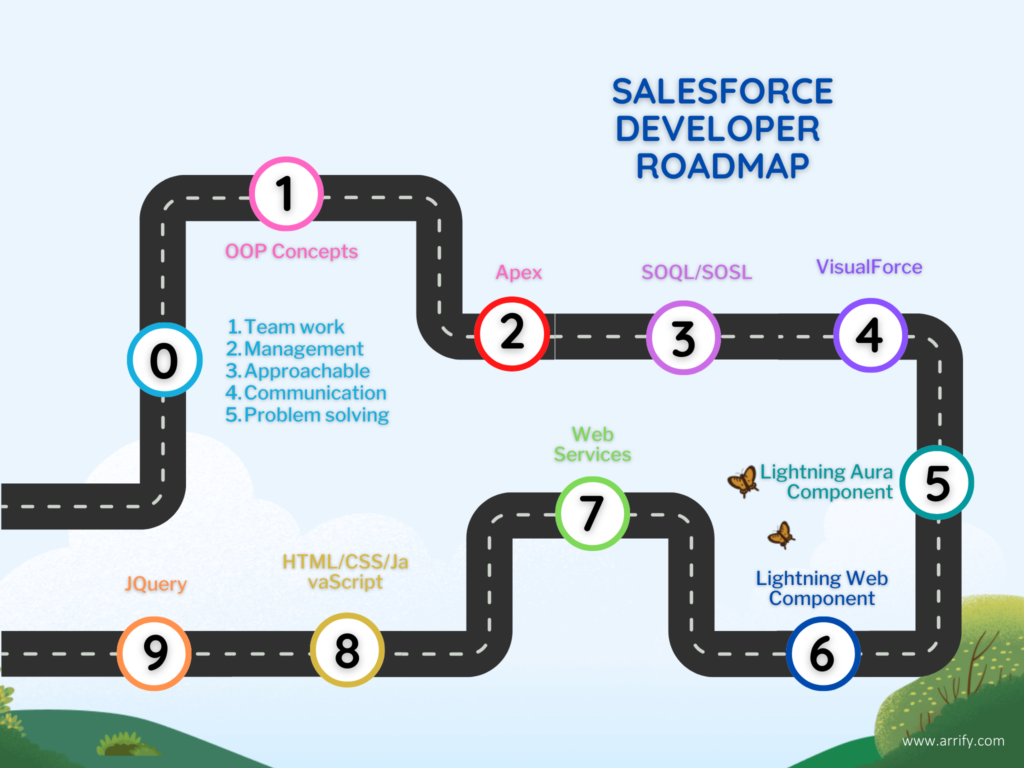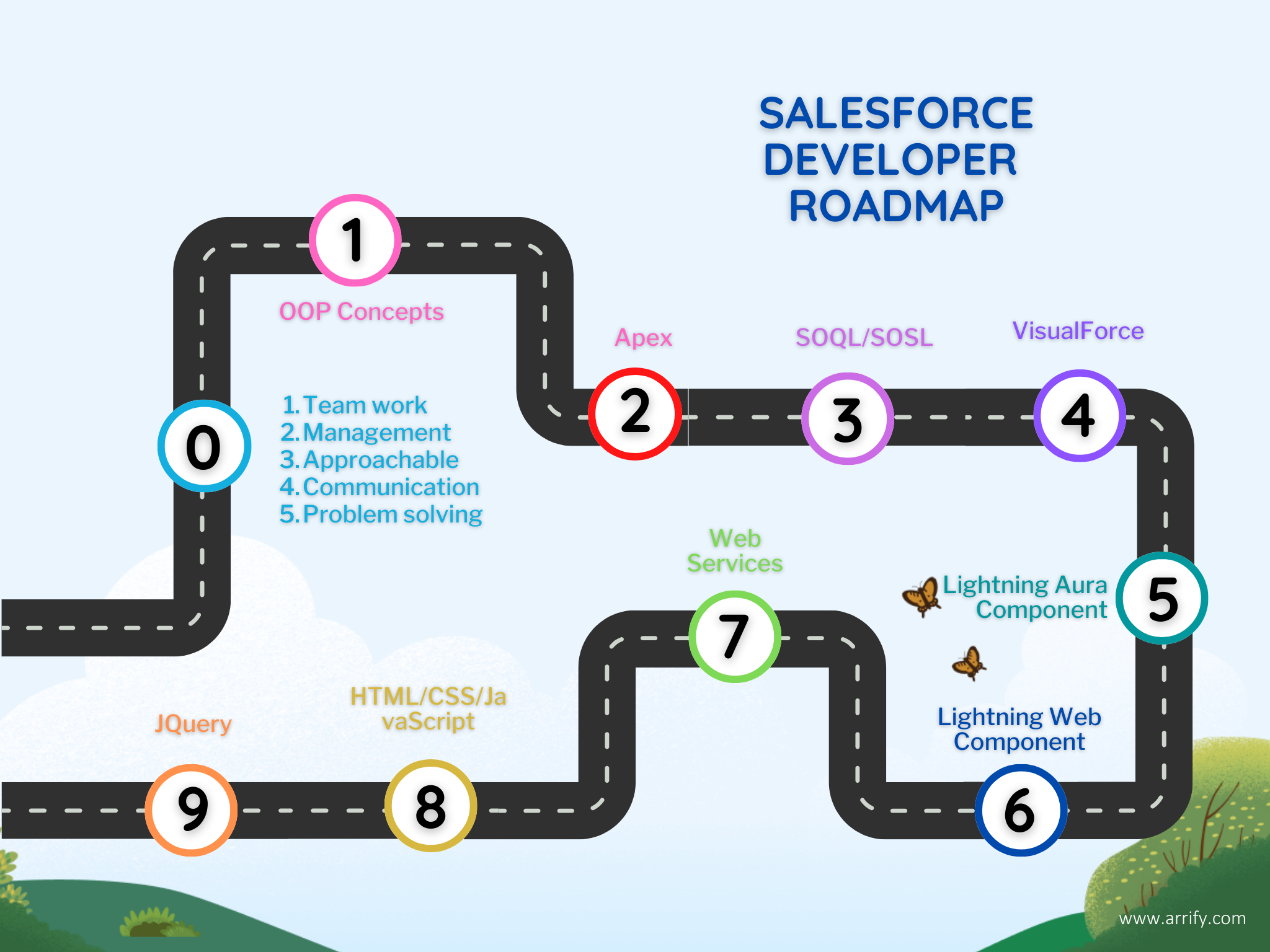
Overview of Salesforce developer role
Salesforce developers are responsible for designing, developing, and maintaining custom applications and solutions on the Salesforce platform. They work with the Salesforce platform to automate business processes, create custom user interfaces, and integrate with external systems.
They also work with the Apex programming language, Visualforce, and the Salesforce Lightning framework to create custom solutions.
Importance of automating tasks with code
As a Salesforce developer, you understand that automating tasks with code can greatly improve efficiency and productivity. By writing code to automate repetitive tasks, you can free up time and resources for more important tasks.
Additionally, automating tasks with code ensures that they are performed consistently and accurately, reducing the chance of human error.
Automation also enables businesses to scale their operations more easily and effectively. This is the main goal of Salesforce developers to automate the process and make it more efficient and productive.
Learn more about Salesforce automation in detail.
Core Skills
OOP
Object-oriented programming (OOP) is a programming methodology that is based on the concept of classes and objects. It allows developers to code in a standard way and is used to structure a program in a simple, reusable, and systematic way.
Properties of OOP
Object & class: Objects are instances of a class and classes define the properties and methods of an object.
Inheritance: Allows classes to inherit properties and methods from a parent class.
Polymorphism: Allows objects of different classes to be used interchangeably.
Abstraction: Hides the implementation details of an object and only exposes the necessary information.
Encapsulation: Protects the data and methods of an object from outside access or manipulation.
Apex is a programming language developed by Salesforce.com specifically for use with the Salesforce platform. Other popular OOP languages include C++, Java, and Python.
Web Services
Web services are application components that enable communication between two systems or devices over a network. They use set protocols that allow data to be exchanged between the two systems.
Types of web services (SOAP and REST)
SOAP (Simple Object Access Protocol) is a standards-based web service that uses XML messages to request and reply to web service operations.
REST (Representational State Transfer) is a web service architecture that uses HTTP requests to GET, POST, PUT, and DELETE data.
Both SOAP and REST web services can be used to create web applications that can be consumed by a wide variety of clients, including web browsers, mobile devices, and desktop applications.
Learn more about Salesforce REST API Endpoints.
JavaScript
JavaScript is a versatile programming language that enables developers to create powerful and interactive web applications. It is lightweight and commonly used in web pages, games, and Salesforce applications.
JavaScript can be used to create dynamic and responsive user interfaces, validate user input, and create interactive elements such as forms, sliders, and models. It can also be used to create web-based games and to add custom functionality to Salesforce applications.
JavaScript allows developers to create web pages that can update and change without needing to refresh the entire page, providing a more seamless user experience. It also allows for real-time validation and error handling, making it easier for users to correct mistakes as they enter data.
JQuery
JQuery is a lightweight JavaScript library designed to simplify HTML DOM tree traversal and manipulation as well as event handling, CSS animation, and Ajax.
JQuery provides a simplified syntax for common JavaScript tasks, such as selecting and manipulating elements on a page, handling events, and making AJAX requests. This means that developers can write less code and accomplish more with JQuery.
JQuery provides a simpler and more efficient way to perform common tasks in JavaScript, allowing developers to write less code and make their code more readable and maintainable. Additionally, JQuery has a large community and a wide range of plugins that provide additional functionality, which can save developers time and effort.
Specialized Skills
Apex
Apex is a programming language developed by Salesforce.com specifically for use with the Salesforce platform. It is a strongly-typed, object-oriented language that allows developers to write custom business logic and automate processes on the Salesforce platform.
Apex can be used to automate business processes and add custom functionality to Salesforce objects and fields. It can also be used to create custom controllers for Visualforce pages and to create custom Apex classes and triggers that respond to specific events in the Salesforce system.
Apex syntax is similar to that of Java, with some differences to support the Salesforce platform. It is a case-insensitive language, variables are declared with the keyword “global” or “public” and support for primitive data types like Integer, String, and Boolean, and collection types like List and Map.
Learn more about Triggers in Salesforce.
SQL/SOSL
Developers can use SOQL and SOSL to retrieve data from Salesforce objects and display it in Visualforce pages, Apex controllers, and Apex classes. They can also use them to perform complex queries and search across multiple objects.
Differences between SOQL and SOSL
SOQL is used to retrieve data from a single object, while SOSL is used to search across multiple objects. SOQL supports a limited set of data types, while SOSL can search for text across all fields. SOQL can only return fields from the objects being queried, while SOSL can return fields from related objects.
VisualForce
Visualforce allows developers to create custom user interfaces that can be hosted natively on the Salesforce Lightning platform. These pages can be used to display, input, and update data in Salesforce, and can include custom logic and validation.
Visualforce pages can be accessed by using a URL similar to a web server page. The URL includes the namespace of the organization and the name of the Visualforce page.
Learn how to Create Visualforce Tabs.
Lightning
Salesforce Lightning is a complete toolbox set for developers which include Salesforce Lightning Framework such as Lightning Components, Lightning App Builder, and Lightning Experience.
Developers can use these tools to create custom applications that can be accessed through the Salesforce Lightning platform.
Salesforce Lightning Toolbox consists of several components such as Lightning Components, Lightning App Builder, and Lightning Experience, which can be used to create custom user interfaces, automate business processes, and integrate with external systems.
Additionally, it provides a set of pre-built components, such as data tables and forms, that can be used to quickly create custom interfaces without having to write a lot of code.
Lightning Aura Component
Salesforce Lightning Component is a user interface (UI) based framework for developing single-page mobile, desktop, and web-based applications. It uses a standardized JavaScript framework for building single-page applications with dynamic responsive user interfaces for Lightning Platform apps. It uses JavaScript on the client side and Apex on the server side. The developer must be familiar with aura component to get Salesforce developer Job.
Lightning Web Component
Lightning Web Components are an updated web standards-based framework method to build lightning components on the Salesforce Platform. It uses standard technology like CSS, HTML, and updated JavaScript. LWC is a powerful tool for modern web development that can help you get a job as a Salesforce developer.
Learn how Easily Build Salesforce Apps with Lightning Web Components.
Conclusion
In this article, we discussed the skills and concepts that are important for a Salesforce developer to know in order to be successful in this role. These include object-oriented programming, web services, JavaScript, JQuery, Apex, SQL/SOSL, Visualforce, and the Salesforce Lightning framework.
As the Salesforce platform and its ecosystem continue to evolve, it is important for Salesforce developers to stay current with the latest developments and advancements in the field. This includes staying up-to-date with new features and functionality, as well as learning new skills and technologies that can help them to be more effective in their role.
A career as a Salesforce developer can be highly rewarding, providing opportunities to work on challenging and interesting projects and to make a meaningful impact on the success of businesses and organizations. If you are passionate about technology and enjoy solving complex problems, a career as a Salesforce developer may be a great fit for you.
FAQs
What does a Salesforce developer do?
Most Salesforce developers create custom business apps using the Salesforce Platform (e.g., Sales Cloud, Service Cloud, or Experience Cloud). They automate business processes, create custom user interfaces, and integrate Salesforce with external systems.
What programming languages do Salesforce developers use?
Salesforce developers commonly use Apex (Salesforce’s programming language), Visualforce, and JavaScript. They may also work with SOQL, SOSL, and tools like Lightning Web Components (LWC).
What is the difference between Visualforce and Lightning?
Visualforce: Used to build custom user interfaces with a server-side focus.
Lightning: A modern framework with a client-side focus, enabling responsive, single-page applications using Lightning Components or Lightning Web Components (LWC).
What is the role of JavaScript in Salesforce development?
JavaScript is essential for creating dynamic, interactive user interfaces. It is especially important in building Lightning Components and customizing Salesforce experiences.
Do Salesforce developers need to know web services?
Yes, Salesforce developers often work with SOAP and REST web services to integrate Salesforce with external systems.
What specialized skills are important for Salesforce developers?
Specialized skills include Apex, SOQL/SOSL, Visualforce, Lightning Components, and expertise in using tools like the Lightning App Builder.

Leave a Reply